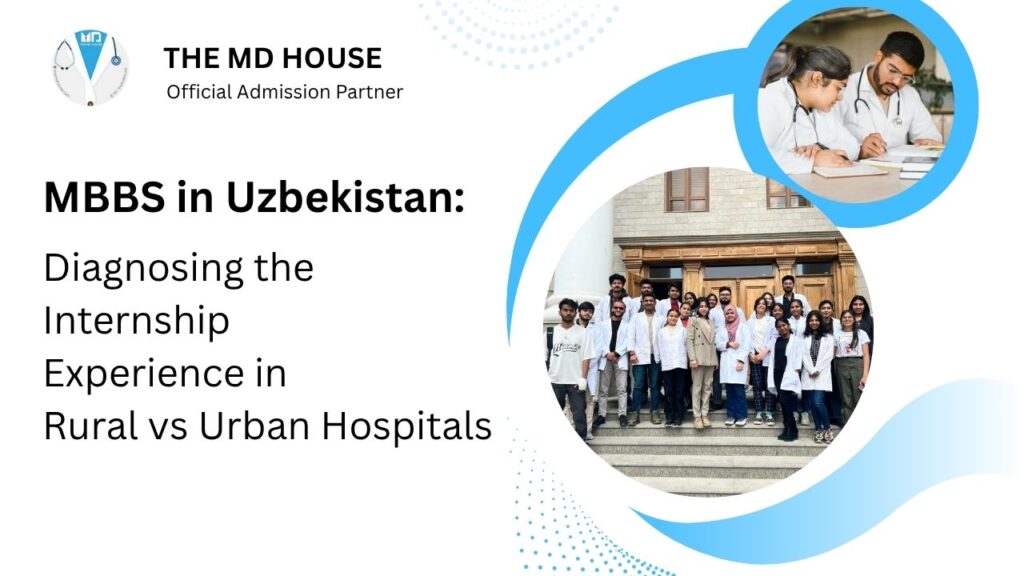
Medical interns in Uzbekistan take practical training in hospitals. This training is an intrinsic part of MBBS in Uzbekistan. However, the level of training and their experience vary from urban to rural hospitals.
Here’s a detailed comparison between urban and rural medical centers of Uzbekistan
Urban Hospitals
Training Structure: As expected, urban hospitals are always better equipped and maintained than their rural counterparts. Trainees benefit from exposure to the latest technologies and specialized medical devices. Urban hospitals also fare better in accessibility. These facilities enhance the overall experience of medical interns.
Case Diversity: Urban healthcare centers report a wide range of medical cases, including rare diseases and complex surgeries. They also serve as referral points for severe medical conditions, especially from rural areas. Here, medical interns have the opportunity to study different cases and treatment options. The exposure is truly wider than rural centers.
Patient Demographics: Urban patients are generally more educated and mobile compared to their rural counterparts. However, rural patients also access urban facilities for better treatment options. For this reason, medical interns are experienced in treating both city-dwellers and rural people. However, they may feel overwhelmed after seeing a large number of patients.
Scope of Practice: Medical interns at urban hospitals have the advantage of high-end facilities. They work under the close supervision of specialists whom they can consult as and when required. However, they may have less practical experience with medical devices compared to their rural counterparts.
Rural Hospitals
Training Structure: Training is important for MBBS in Uzbekistan for Indian students. This country still has Soviet-era medical facilities in rural sectors. However, their government is working hard to develop rural medical facilities. These facilities serve as primary care centers and rely on urban hospitals for specialized care.
Case Diversity: Rural hospitals receive a greater volume of common medical conditions that can be treated with minimal screening or medical intervention. Severe cases are often detected at a late stage and immediately referred to urban healthcare centers for better treatment options. However, interns develop a strong foundation for general practice.
Patient Demographics: Rural interns treat a more geographically isolated population. Most rural people speak Russian, which makes it mandatory for interns to understand the local language. Rural patients require complete education on their medical conditions and treatment options. These factors make treating rural patients an uphill task for rural interns.
Scope of Practice: Rural interns have the advantage of greater autonomy. They are the first to provide primary care to patients. They have wider practical experience of working with whatever medical devices are available at rural healthcare centers. However, they have the disadvantage of minimal supervision and access to specialists. They have to refer serious patients to urban centers.
The practical training or medical internship increases the scope of learning in MBBS in Uzbekistan for Indian students. The students have little say in the selection of hospitals for internship. They go wherever they are sent for practice.

0 Comments